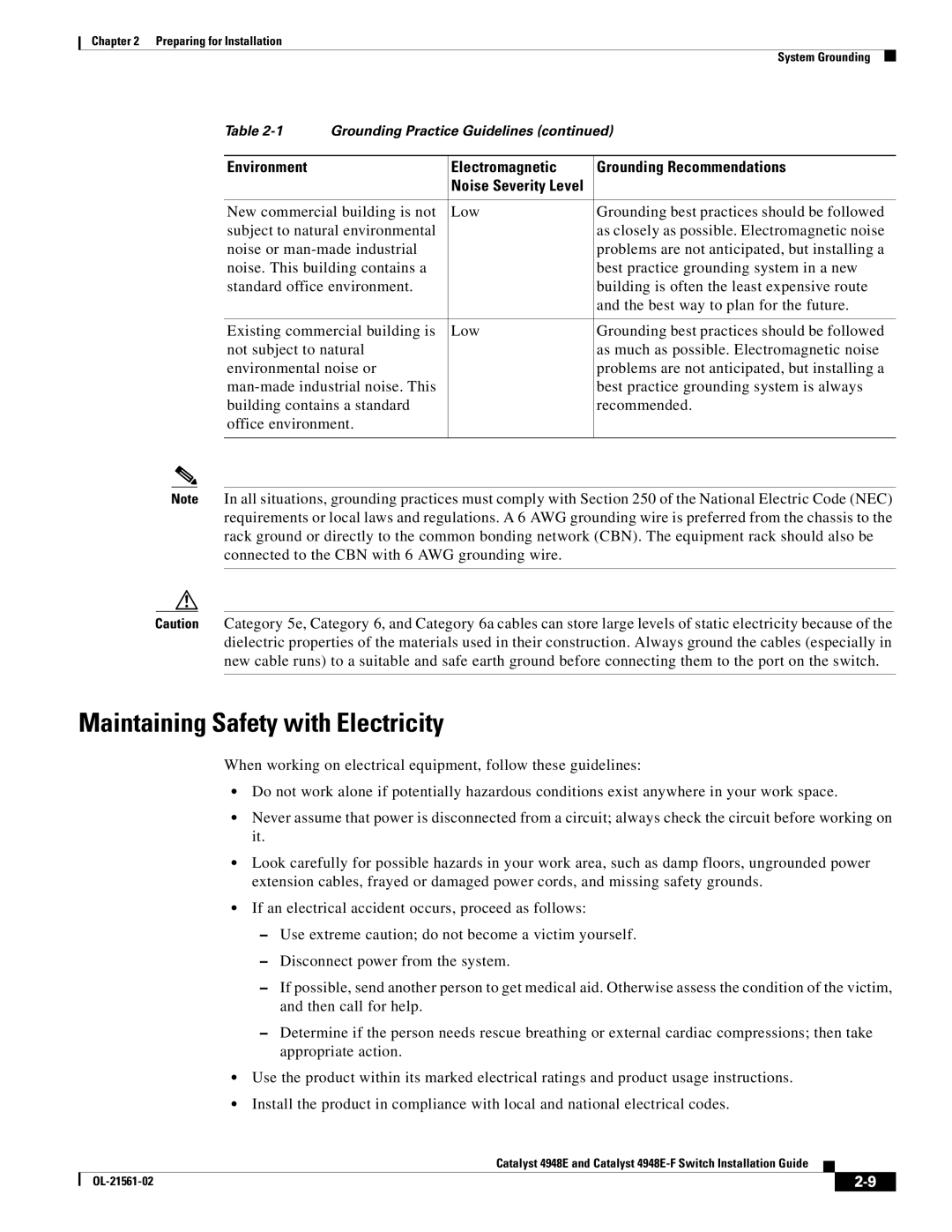
Chapter 2 Preparing for Installation
System Grounding
Table | Grounding Practice Guidelines (continued) | ||
|
|
|
|
Environment |
| Electromagnetic | Grounding Recommendations |
|
| Noise Severity Level |
|
|
|
| |
New commercial building is not | Low | Grounding best practices should be followed | |
subject to natural environmental |
| as closely as possible. Electromagnetic noise | |
noise or |
| problems are not anticipated, but installing a | |
noise. This building contains a |
| best practice grounding system in a new | |
standard office environment. |
| building is often the least expensive route | |
|
|
| and the best way to plan for the future. |
|
|
| |
Existing commercial building is | Low | Grounding best practices should be followed | |
not subject to natural |
| as much as possible. Electromagnetic noise | |
environmental noise or |
| problems are not anticipated, but installing a | |
| best practice grounding system is always | ||
building contains a standard |
| recommended. | |
office environment. |
|
| |
|
|
|
|
Note In all situations, grounding practices must comply with Section 250 of the National Electric Code (NEC) requirements or local laws and regulations. A 6 AWG grounding wire is preferred from the chassis to the rack ground or directly to the common bonding network (CBN). The equipment rack should also be connected to the CBN with 6 AWG grounding wire.
Caution Category 5e, Category 6, and Category 6a cables can store large levels of static electricity because of the dielectric properties of the materials used in their construction. Always ground the cables (especially in new cable runs) to a suitable and safe earth ground before connecting them to the port on the switch.
Maintaining Safety with Electricity
When working on electrical equipment, follow these guidelines:
•Do not work alone if potentially hazardous conditions exist anywhere in your work space.
•Never assume that power is disconnected from a circuit; always check the circuit before working on it.
•Look carefully for possible hazards in your work area, such as damp floors, ungrounded power extension cables, frayed or damaged power cords, and missing safety grounds.
•If an electrical accident occurs, proceed as follows:
–Use extreme caution; do not become a victim yourself.
–Disconnect power from the system.
–If possible, send another person to get medical aid. Otherwise assess the condition of the victim, and then call for help.
–Determine if the person needs rescue breathing or external cardiac compressions; then take appropriate action.
•Use the product within its marked electrical ratings and product usage instructions.
•Install the product in compliance with local and national electrical codes.
Catalyst 4948E and Catalyst
|
| ||
|
|
